Vegan Globetrotter is supported by our audience. When you purchase through one of our links, we may earn a small affiliate commission. As an Amazon Associate I earn from qualifying purchases. Your cost is not affected.
==================
Iron is a crucial mineral that supports many bodily functions, including oxygen transport and the formation of red blood cells. Those following a vegan diet must be vigilant to ensure they include sufficient iron-rich foods in their meal plans since they exclude animal products, a common source of easily absorbed heme iron. Plant-based sources offer non-heme iron, which is still beneficial but generally less readily absorbed than iron from meat.
Iron-Rich Vegan Foods: Your Guide to Plant-Based Nutrition
To counter potential deficiencies, vegans can choose from various iron-rich foods such as legumes, grains, nuts, seeds, and leafy greens. Understanding how to combine these with foods high in vitamin C can enhance iron absorption, making it easier for the body to utilize.
Additionally, cooking methods and meal planning are essential in maximizing iron intake. With intentional dietary choices, vegans can achieve optimal iron levels and maintain overall health.
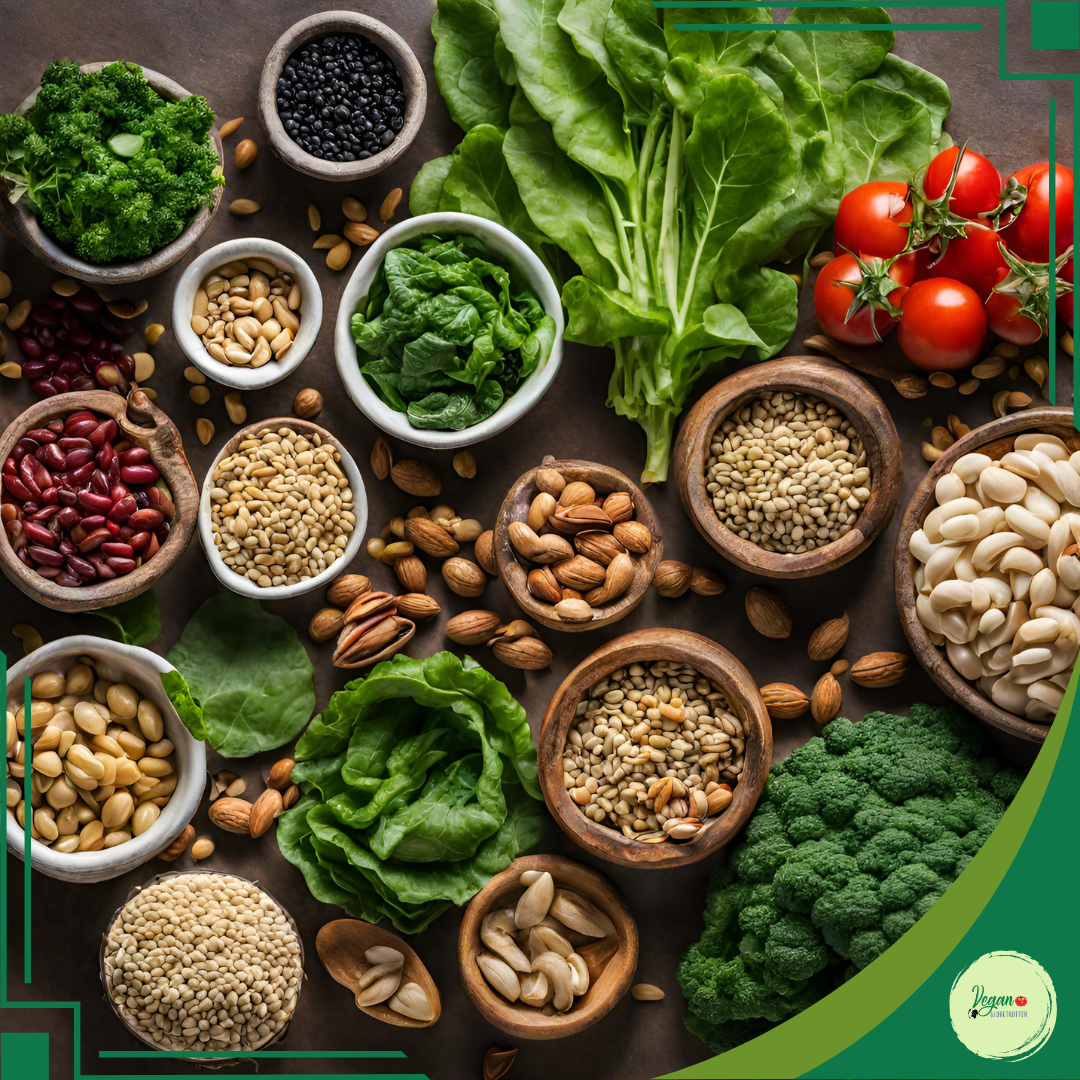
Key Takeaways
- Legumes, grains, nuts, seeds, and leafy greens are good vegan iron sources.
- Vitamin C consumption alongside iron-rich foods enhances absorption.
- Proper meal planning is key to maintaining sufficient iron levels in a vegan diet.
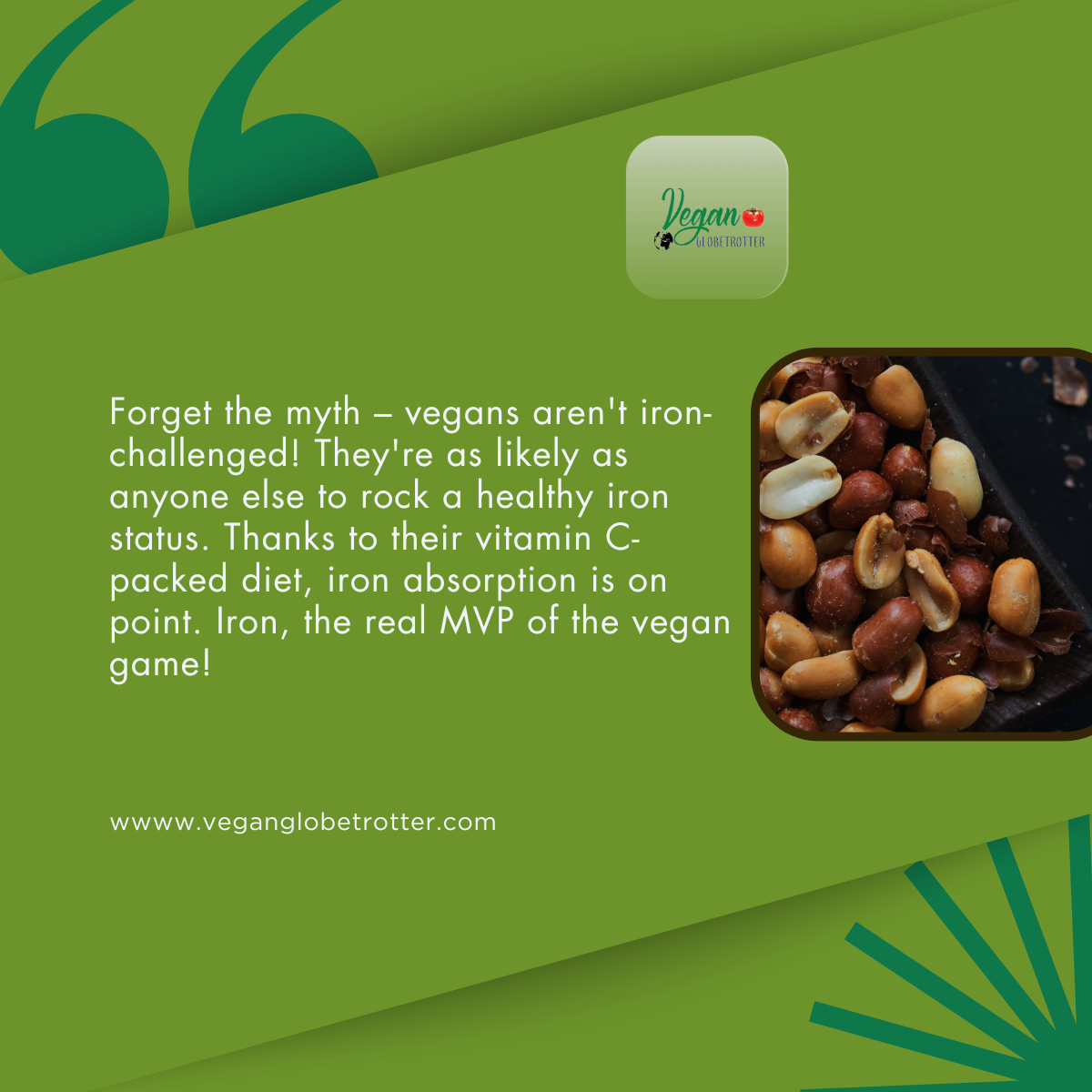
Importance of Iron in a Vegan Diet
Video Credit: @LIVEKINDLY
Iron is a vital mineral that the human body requires for many functions. It’s primarily known for its role in forming hemoglobin, a protein in red blood cells that transports oxygen throughout the body. Obtaining enough iron is crucial for individuals following a vegan diet as it supports metabolism and produces certain hormones.
The body absorbs two types of iron: heme and non-heme. Heme iron, which is found in animal products, is typically absorbed more easily by the body.
This presents a unique challenge to vegans, who must obtain iron solely from non-heme sources that are not as readily absorbed. However, consuming vitamin C-rich foods can significantly enhance the absorption of non-heme iron.
Vegans can ensure adequate iron intake by including rich plant-based sources in their diets, such as:
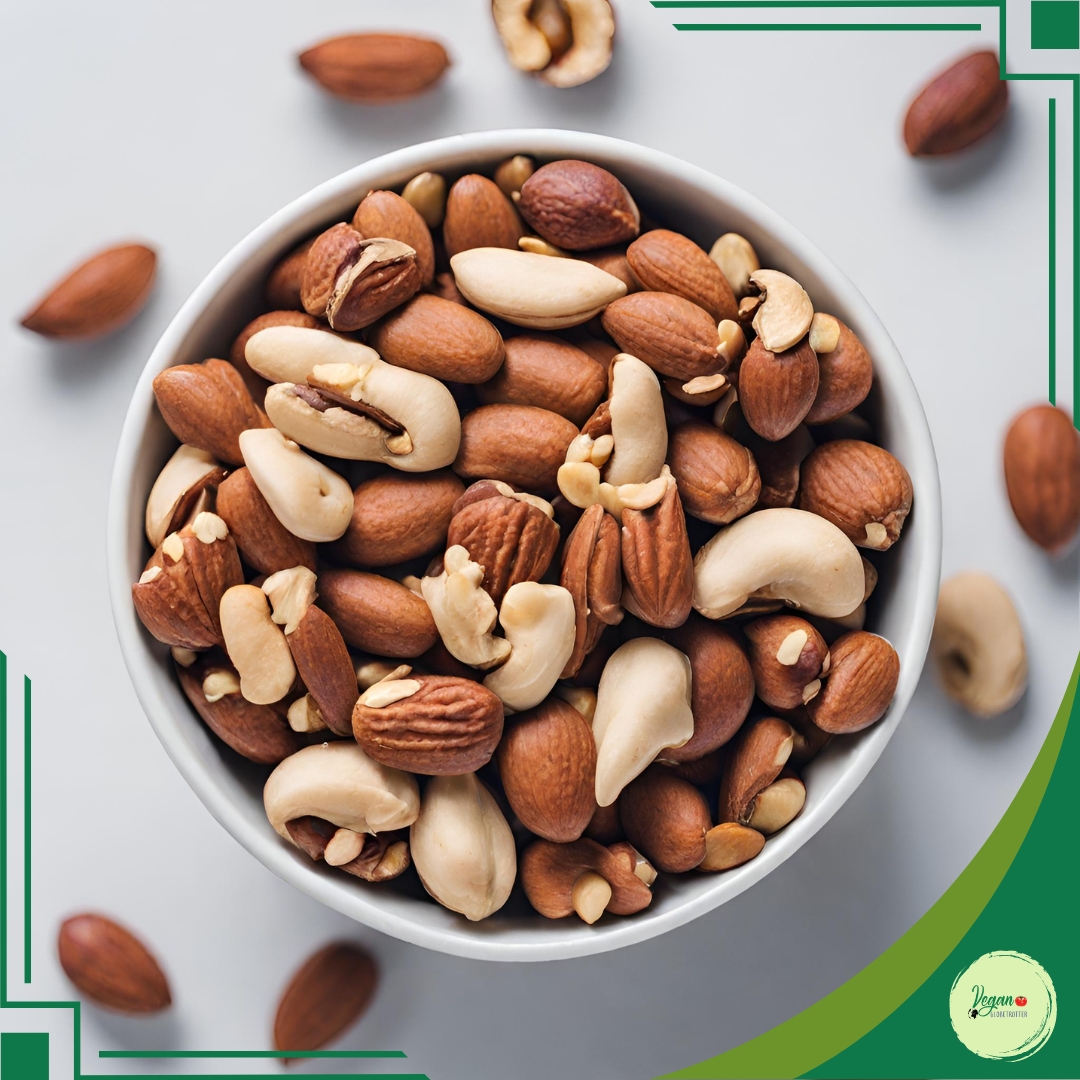
- Legumes: lentils, chickpeas, soybeans
- Grains: quinoa, fortified cereals
- Nuts and Seeds: pumpkin seeds, almonds
- Leafy Greens: spinach, kale
- Dried Fruits: apricots, figs
To maximize iron absorption, consuming these foods in conjunction with sources of vitamin C like bell peppers, broccoli, and citrus fruits is advisable. Additionally, vegans should be mindful of certain foods and substances like coffee and tea, which can inhibit iron absorption when consumed in large amounts.
Monitoring iron status through periodic blood tests is a sensible practice for those on a vegan diet to ensure they meet their nutritional needs and help prevent iron deficiency anemia.
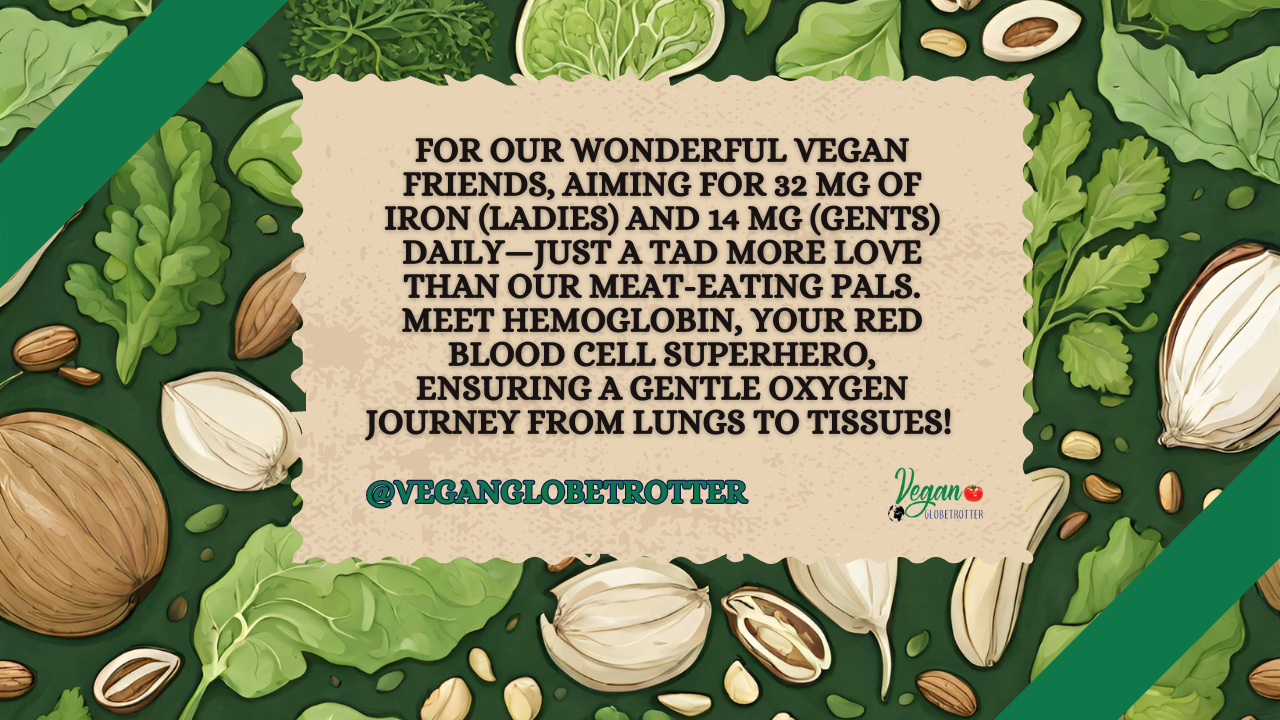
Top Iron-Rich Vegan Foods
Iron is an essential nutrient, and it’s crucial for those following a vegan diet to include sources of it in their meals. This section focuses on plant-based foods high in iron, ensuring that vegans can meet their nutritional needs.
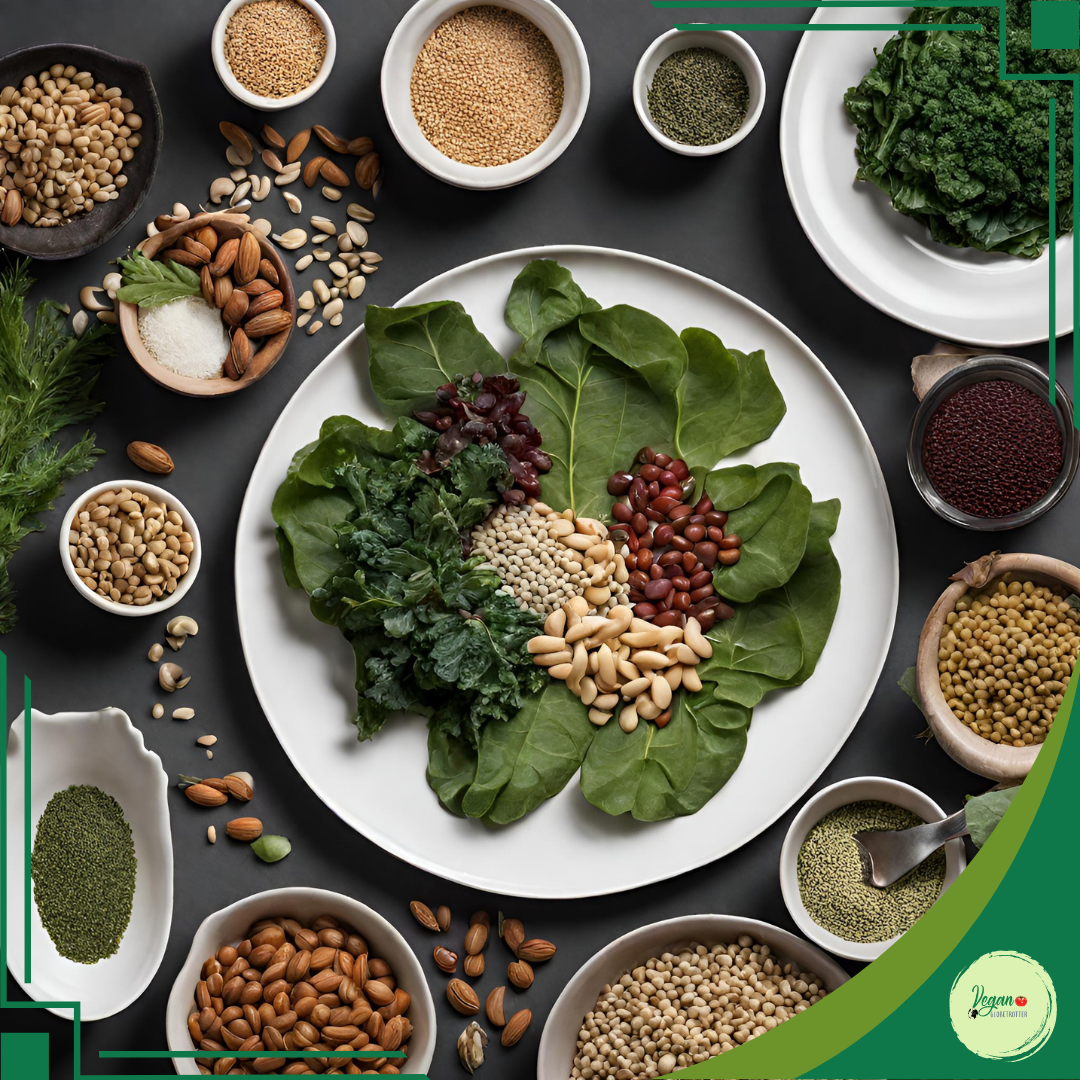
Legumes
Legumes are a staple in a vegan diet and a significant source of non-heme iron. Chickpeas, lentils, soybeans, and black beans are all excellent choices. For instance, a cup of cooked lentils has about 6.6 milligrams of iron, making them a valuable addition to any meal.
Seeds and Nuts
Seeds and nuts are tasty and packed with nutrients, including iron. Pumpkin seeds, sesame seeds, hemp seeds, cashews, and almonds are particularly iron-rich. A one-ounce serving of sesame seeds contains about 1.3 milligrams of iron, which is significant for such a small portion.
Whole Grains
Whole grains like quinoa, barley, brown rice, and oats also contribute to iron intake. Quinoa, for example, provides around 2.8 milligrams per cooked cup, alongside fiber and protein. Including a variety of whole grains in one’s diet can help maintain iron levels.
Vegetables
Certain vegetables are surprisingly high in iron, especially dark leafy greens like spinach, kale, and Swiss chard. A cooked cup of spinach offers around 6.4 milligrams of iron, which is a sizable contribution toward the daily recommendation.
Dried Fruits
Finally, dried fruits like apricots, raisins, and dates are sweet treats and iron boosters. For instance, a half-cup of dried apricots provides nearly 2 milligrams of iron. They’re a convenient snack and can be easily incorporated into various recipes.
Enhancing Iron Absorption
Adequate iron absorption is crucial for the body to utilize this essential mineral effectively. Specific nutrients can promote iron uptake, while other substances may hinder the process.
Vitamin C and Iron Absorption
Vitamin C, or ascorbic acid, is pivotal in enhancing non-heme iron absorption, a type of iron found in plant-based foods. Combining vitamin C-rich foods like bell peppers, oranges, and strawberries with iron-rich foods can significantly increase iron absorption.
For instance, adding a squeeze of lemon juice to a spinach salad can enhance the body’s ability to absorb the iron present in the spinach. Research shows that this can as much as double the amount of iron the body can get from a meal.
Iron Absorption Inhibitors
While some nutrients aid in iron absorption, certain compounds act as inhibitors. These include:
- Phytates, found in whole grains, legumes, and nuts
- Polyphenols, present in tea, coffee, and some fruits and vegetables
- Calcium, which competes with iron for absorption
Individuals can minimize the impact of these inhibitors by consuming them several hours before or after iron-rich meals or selecting food preparation methods like soaking, fermenting, or sprouting that can reduce phytate levels in foods. It’s also worth noting that excessive intake of inhibitor-rich foods could potentially make it harder to maintain adequate iron levels.
Iron Supplements for Vegans
Vegans may need to pay special attention to their iron intake, as plant-based iron is not absorbed as efficiently as heme iron, which is found in animal products. Iron supplements can be a useful part of a vegan diet to prevent iron deficiency anemia.
Types of Vegan Iron Supplements
- Ferrous Sulfate: Common, but may cause gastrointestinal discomfort.
- Ferrous Gluconate: Gentler on the stomach.
- Ferrous Bisglycinate: Highly absorbable and may cause fewer side effects.
It is important to choose a specifically vegan-certified supplement to ensure it does not contain any animal-derived ingredients. Amazon.com offers a range of such iron supplements meant for vegans.
Recommended Dosage
- The recommended daily amount (RDA) for adult men is 8 mg of iron.
- Non-menstruating women should aim for 8 mg, while menstruating women may require 18 mg per day.
- It is advised to consult with a healthcare professional before starting any supplementation.
Enhancing Absorption
- Consume vitamin C-rich foods like oranges or bell peppers alongside the supplement to improve iron absorption.
- Avoid calcium-rich foods or supplements at the same time, as calcium can inhibit iron absorption.
The selection and timing of iron supplementation are crucial for efficacy and tolerability. For more detailed reviews and information on the best vegan iron supplements, including pricing and customer feedback, visit BestReviews.com.
Always check with a healthcare provider before beginning any new supplement to ensure it is appropriate for your health needs.
Meal Planning for Optimal Iron Intake
For individuals following a vegan diet, incorporating various iron-rich foods is crucial for maintaining healthy iron levels. Careful meal planning can ensure adequate intake of this essential mineral.
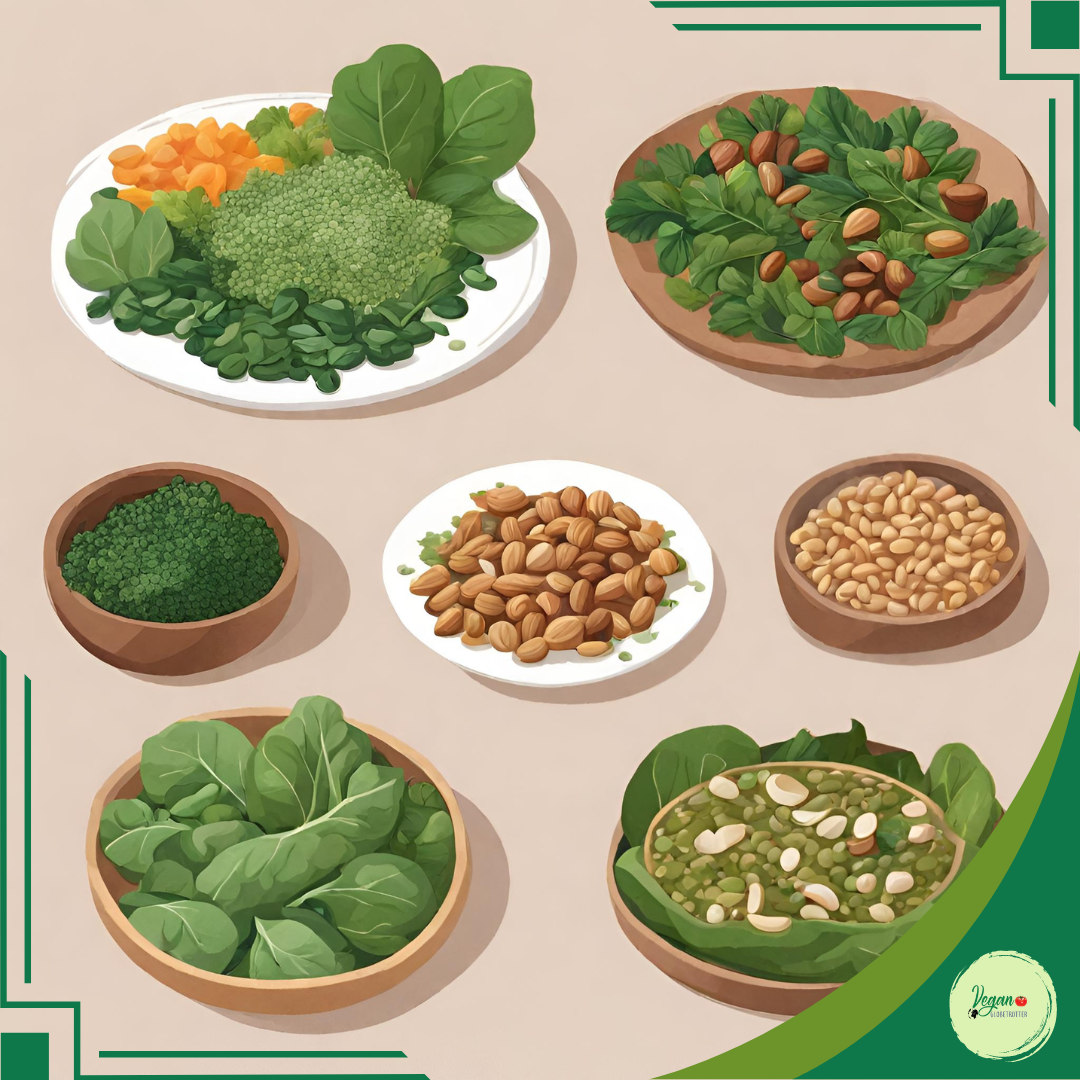
Daily Meal Ideas
- Breakfast: Begin the day with a bowl of fortified wholegrain cereal topped with sliced strawberries and a glass of orange juice. The vitamin C in the strawberries and juice will enhance iron absorption.
- Lunch: Opt for a quinoa salad packed with black beans, roasted red peppers, and kale. Quinoa and black beans provide non-heme iron, while the vitamin C from red peppers aids its absorption.
- Dinner: A lentil curry with a side of steamed broccoli ensures a hearty dose of iron. Adding tomatoes to the curry acts as a vitamin C boost.
Strategies for Iron-Rich Meals
- Incorporate Vitamin C: Cooking with ingredients high in vitamin C, like bell peppers or citrus fruits, can improve iron absorption.
- Combine Foods Strategically: Pair iron-rich legumes, nuts, seeds, and grains with vitamin C-rich vegetables in meals to maximize iron bioavailability.
Monitoring Iron Levels
Monitoring iron levels is critical to maintaining a healthy diet, particularly for those following a vegan lifestyle. Body iron levels are typically checked through a blood test called a complete blood count (CBC) to measure hemoglobin and hematocrit. Additionally, a serum ferritin test can provide insights into the body’s stored iron.
For accurate monitoring, individuals should:
- Get regularly tested: It is advisable to have one’s iron levels checked during annual physical exams. Specific frequency can depend on personal health history and dietary intake.
- Be mindful of symptoms: Symptoms of iron deficiency can include fatigue, paleness, headaches, and dizziness. One should consult a healthcare provider if these symptoms arise.
Vegans should pay particular attention to their iron intake due to the absence of heme iron, which is derived from animal products and more easily absorbed by the body. Plant-based iron sources are abundant but include non-heme iron, which the body absorbs less efficiently. Enhancing absorption can be achieved by:
- Consuming vitamin C: Pairing iron-rich foods with vitamin C-rich foods can significantly improve absorption.
- Avoiding inhibitors: Certain substances like caffeine and tannins in tea can inhibit iron absorption and should be consumed in moderation or at different times than iron-rich meals.
Individuals following a vegan diet can maintain healthy iron levels by being strategic about their food choices and monitoring intake through periodic lab tests and awareness of deficiency symptoms. For detailed information on vegan sources of iron, VegFAQs provides a comprehensive list and chart.
Potential Health Concerns
Individuals may face potential health concerns related to iron intake when adopting a vegan diet. Iron deficiency anemia is a common concern as the body requires adequate iron to produce healthy red blood cells. Vegans might be more susceptible to this condition if they do not consume sufficient non-heme iron, which is the form of iron found in plant-based foods.
Non-heme iron has a lower absorption rate than heme iron, which is found in animal products. Vegans should focus on combining iron-rich foods with vitamin C-rich foods, such as citrus fruits or bell peppers, to enhance iron absorption.
Individuals following a vegan diet should be aware of the signs of iron deficiency, which include fatigue, pale skin, shortness of breath, and cold hands and feet. Menstruating women, in particular, should monitor their iron intake, as they have increased iron needs.
Vegans must include a variety of iron-rich plant foods in their diet. Some examples include:
- Legumes (lentils, chickpeas)
- Nuts and seeds (pumpkin seeds, cashews)
- Whole grains (quinoa, fortified cereals)
- Leafy green vegetables (spinach, kale)
While routine iron supplementation is not generally recommended for individuals on a vegan diet, it is important to consult a healthcare provider for personalized advice. Blood tests can determine whether supplementation is needed based on individual iron levels.
Wrapping It Up
There are many iron-rich vegan foods to choose from. Include lentils, spinach, and quinoa in your meals. Pair them with vitamin C for better absorption.
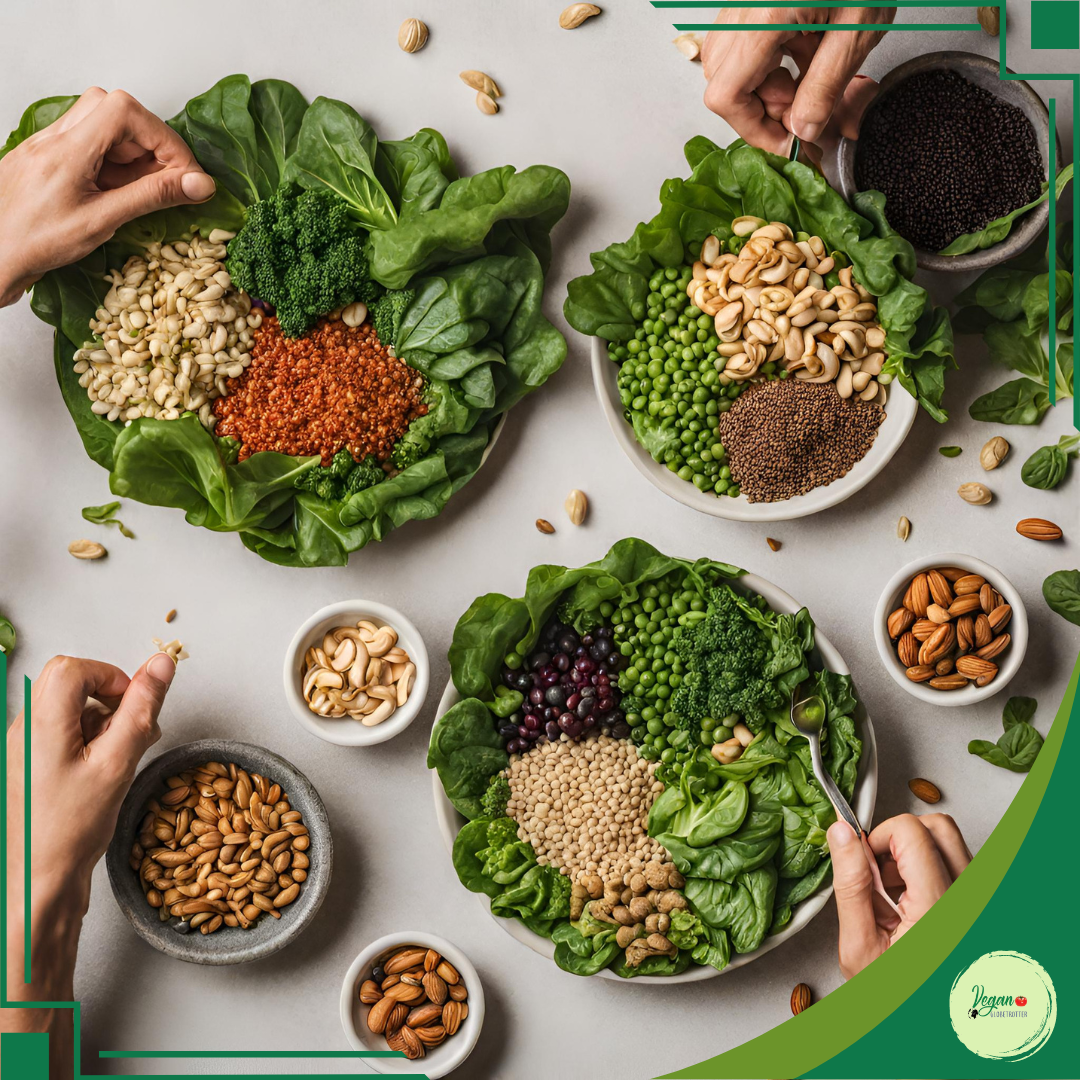
Remember, a well-planned vegan diet can meet your iron needs. Enjoy these nutritious foods for your health and energy!
Frequently Asked Questions
What are the top iron-rich vegan options?
Some of the top iron-rich vegan foods include lentils, chickpeas, quinoa, tofu, and various seeds such as chia and hemp seeds. Incorporating these into meals can help vegans meet their iron needs.
Which vegan foods help combat anemia?
To combat anemia, vegans should consume foods high in iron, such as beans, fortified cereals, dried fruits, and dark leafy greens like spinach and kale, all contributing to restoring iron levels.
What are the best plant-based sources of iron for vegans?
The best plant-based sources of iron for vegans include leafy greens, kidney beans, pumpkin seeds, and whole grains. These foods provide non-heme iron, best absorbed with vitamin C-rich foods.
How can vegans prevent iron deficiency?
Vegans can prevent iron deficiency by regularly consuming various iron-rich foods such as lentils and grains, and by enhancing iron absorption with foods high in vitamin C. It’s also important to avoid tea and coffee with meals, which can inhibit iron absorption.
Are there any fruits that provide a significant source of iron for a vegan diet?
Certain fruits, like mulberries and currants, are noted for their higher iron content. These can be included in a vegan diet to help increase iron intake.
Is there a risk of iron overload from a plant-based diet?
While it’s uncommon, iron overload from a plant-based diet can occur if someone consumes large amounts of iron supplements or eats fortified foods in excessive amounts. Vegans need to balance their diet and, if necessary, consult a healthcare professional about their iron levels.
Learn Vegan Cooking With Us!
Discover the various vegan dishes with Vegan Globetrotter. Learn aromatic and appetizing vegan dishes that blend flavor, health, and simplicity. Stay connected and enhance your vegan cooking skills:
- Facebook: Vegan Globetrotter
- Instagram: @_veganglobetrotter
- Pinterest: The Vegan Globetrotter
- Twitter: @VeganGlobetrot
Join our community and explore the wonders of vegan cooking! For more insights into the world of vegan cooking, visit our website: veganglobetrotter.com



Don't miss out
when new recipes and information are added!
Join our newsletter for free recipes,
healthy living inspiration, and special offers
You have Successfully Subscribed!